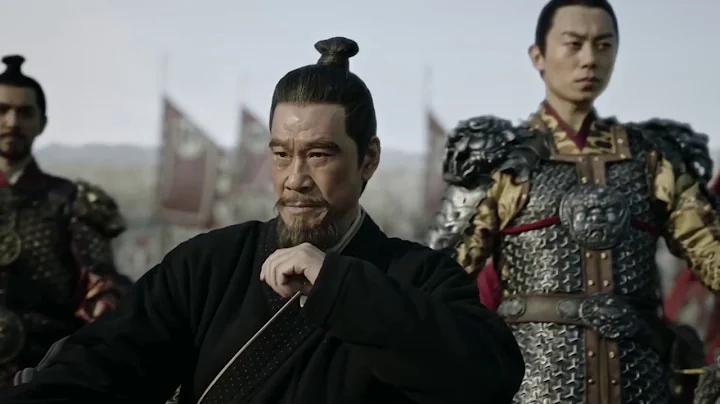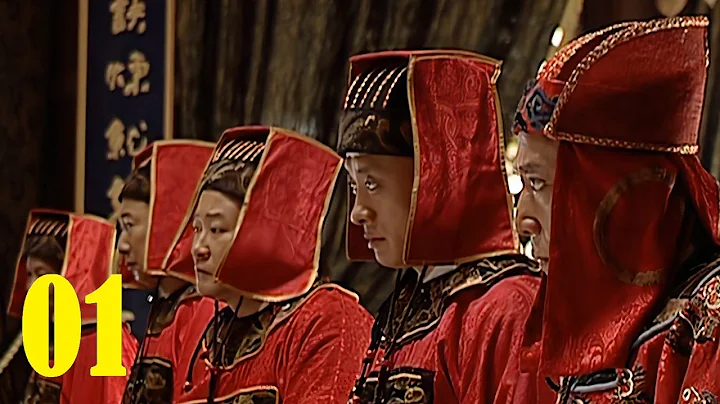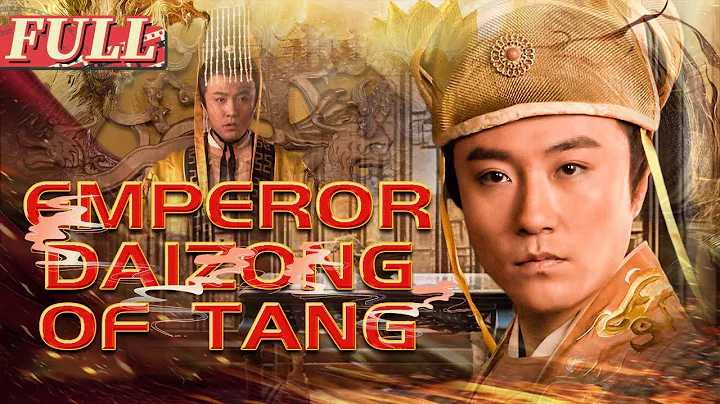After Zhu Yuanzhang established the Ming Dynasty, he was very touched by the tragedy of the decline of the royal family, the decline of military power, and the final demise of the dynasty in the late Qin, Han, and Tang periods.

Rebellion of the Seven Kingdoms
Therefore, Zhu Yuanzhang decided to strengthen the power of the royal family and spread the military power to each of his sons when they grew up.
On the one hand, it is certainly because they are afraid of repeating the mistakes of previous dynasties; on the other hand, it is also because of the outstanding military exploits of the Huaixi nobles in the early Ming Dynasty, and most of the soldiers in the army obeyed the orders of these Huaixi nobles. Xi Xungui.

After summarizing the governance experience of various dynasties since the Western Zhou Dynasty, Zhu Yuanzhang felt that the systems of the early Han Dynasty and the Yuan Dynasty were better.
In the early years of the Han Dynasty and the Yuan Dynasty, the country was governed by a combination of the enfeoffment system and the prefecture and county system . The enfeoffed princes and kings could protect their homes, their country, and their borders. The governors of prefectures and counties can handle civil affairs and collect taxes to bring peace to the people. Once this idea was formed, Zhu Yuanzhang's character made his decision immediately.
According to Zhu Yuanzhang's words: "The world is so big that it is necessary to build a vassal screen to protect the country at the top and provide safety for the people at the bottom. Now that the princes have grown up, it is appropriate for each to have a title and divide the kingdoms." This is what the vassal kings accepted in the early Ming Dynasty. The origin of the seal.

Zhu Yuanzhang stills
During the Hongwu period, a total of 25 clan members were named vassal kings by Zhu Yuanzhang and guarded one side. Among these 25 people, 24 are Zhu Yuanzhang's sons, and one is his grandson. The 25 vassal kings were distributed from the border to the hinterland of the Central Plains, and they were present in all major military towns.
The power of the vassal kings in the early Ming Dynasty was no less powerful than that of the princes and kings in the early Han Dynasty, or even more powerful. The vassal king could establish a state within a state in his fiefdom and set up his own official system.
According to Zhu Yuanzhang's regulations, even the prime ministers and princes in the central court had to kneel down and pay respect to the vassal king when they saw him. This shows the high political status of the vassal king.

Stills of Yan King Zhu Di
Not only that, each vassal king's salary is more than 10,000 dan of food, and he also has military command rights. Think about it, everyone, a person with power, money and soldiers, who is said to be a vassal king, is actually a local warlord. As long as the emperor can suppress it, it's okay, but if he can't suppress it, won't he become the opposite?
According to historical records, the lord of the feudal lord set up a Prince Guard Command Department in the royal palace, which was responsible for three lines of military guards. The number of guard soldiers ranged from 3,000 to 19,000, and the above numbers were only the number of troops under the lord's command stationed in the interior.

Still photos of Ming army guard soldiers
In addition, in the early Ming Dynasty, there were nine Sai kings, with more troops and greater power. Why is King Sai? It means the vassal king who guards the frontier area. They are the nine princes of Liao, Ning, Yan, Gu, Dai, Jin, Qin, Qing and Su. Their main duty is to prevent the cavalry of Mongolian grassland from going south, so they are responsible for guarding the border.
Among the nine great fortress kings, the most powerful ones are King Yan and King Ning. King Yan was Zhu Di, the fourth son of the emperor, and later became the ancestor of the Ming Dynasty. King Ning was the seventeenth son of the emperor, Zhu Quan. He was deeply favored by Zhu Yuanzhang and had great military talent!
Zhu Di, king of Yan, who was stationed in Peiping , commanded 100,000 troops. Zhu Quan, stationed in Inner Mongolia, had 80,000 armored men and 6,000 leather chariots under his command. In terms of maneuverability, he was stronger than Zhu Di.

Ning Wang Zhu Quan stills
But Zhu Di is older after all, and has the richest military experience among the nine Sai kings. He and his third brother King of Jin went out to fight against the Mongolian cavalry many times, beating the remaining Mongolian and Yuan forces to pieces and not daring to look south.
Zhu Yuanzhang was very happy. He specially commended the King of Jin and the King of Yan, and allowed the military to make decisions on small matters on its own, and only major matters were reported to the court for processing.
Later, King Zhu Di of Yan continued to perform meritorious services, and Zhu Yuanzhang favored him even more, allowing him to "control the soldiers and horses along the border" . I was wondering about the armies of other vassal kings that were not included in this "border soldiers and horses"? It should not be included, otherwise it would be too terrible.
However, all officials within King Yan's fiefdom, even those appointed by the court, should be controlled by King Yan, so we can understand the meaning of this sentence. At the same time, we can also see the respect for King Yan's status.

Prime Minister Li Shanchang stills
In this way, the vassal kings built cities and farmed in the frontier areas, trained troops and generals, inspected key points, and supervised the construction of weapons. Some vassal kings could also handle domestic political affairs, and they were already similar to small kings.
By the end of Hongwu , the power of the vassal king had expanded rapidly. Zhu Yuanzhang did not find anything wrong with doting on his son, but the knowledgeable people in the court had already seen the signs.
Pingyao County Discipline Ye Boju reported: " The power of the vassal kings is getting stronger and stronger. Currently, there are still family ties to maintain them. After a few generations, the blood ties will fade, and I am afraid something will happen and the chaos of the Seven Kingdoms of the Han Dynasty will reappear. The farce of the Eight Kings of the Western Jin Dynasty came. By then, even if you want to reduce the vassal status, it will be too late! The land managed by the king was reduced, the vassal king's guards were reduced, and the vassal king's management rights over the cities in the fiefdom were confiscated. "
From our perspective today, Ye Boju's words are definitely good advice for the country and the people. good idea. Unfortunately, our Mr. Zhu Yuanzhang did not follow his advice, and thought that Ye Boju was trying to alienate the relationship between his father and son. In a rage, he put Ye Boju in prison and tortured him to death.

Ye Boju
However, after calming down, Zhu Yuanzhang did feel that Ye Boju's words were reasonable, but he was reluctant to weaken his son's power and instead adopted another milder method.
Zhu Yuanzhang stipulated that when a prince who is granted a title reaches the age, he must go to the fiefdom to become a vassal and must not stay in the capital. After arriving in the fiefdom, they are not allowed to have contact or contact with other feudal kings.
If the vassal kings wanted to enter the capital for business, they could not enter the capital at the same time. They had to wait until the previous vassal king left the capital before the next vassal king could enter the capital. This was to prevent the vassal kings from plotting against each other and threatening the imperial power.

Prince Zhu Biao bids farewell to the vassal kings' brothers
Therefore, during the Hongwu period, once the vassal kings left the vassal, they basically had no chance to meet again. It was a meeting once or less, which was tantamount to separation or death.
From this point of view, although Zhu Yuanzhang was very partial to his sons. But when it comes to safeguarding imperial power, he is also completely merciless.
Unfortunately, the most unpredictable thing in this world is the human heart. Zhu Yuanzhang would never have imagined that less than four years after his death, the throne he passed to his grandson would be snatched away by his fourth son, Zhu Di. This also confirmed the failure of his vassal king system!

Battle of Jingnan
I am an expert on Ming history. Everyone is welcome to follow me!





















